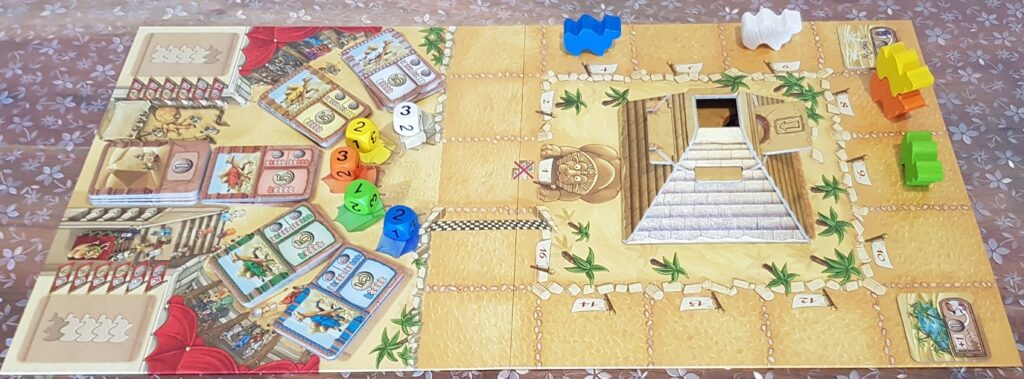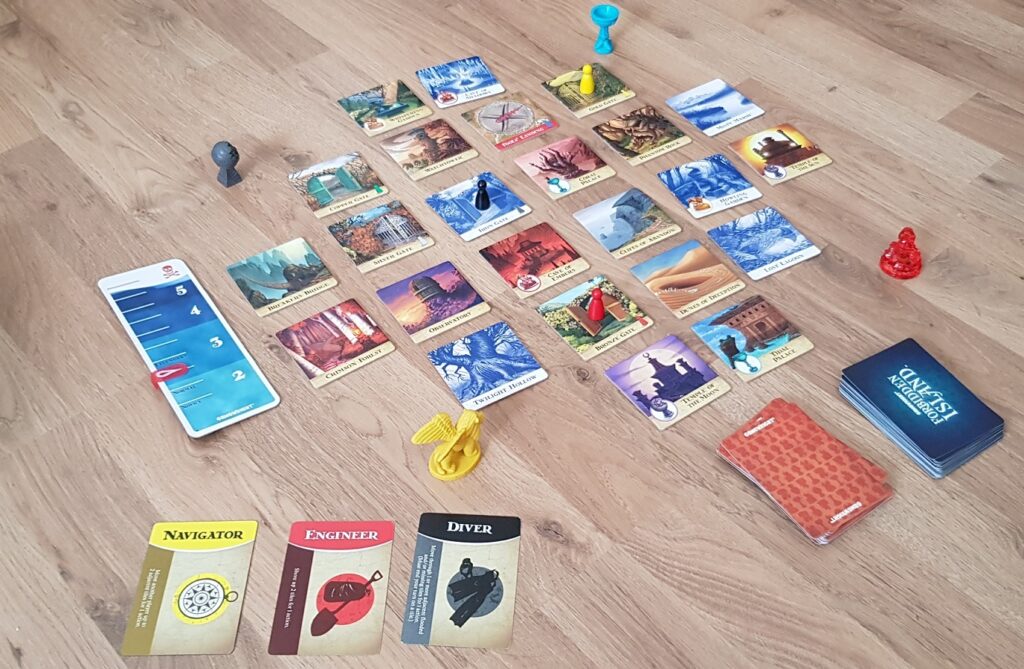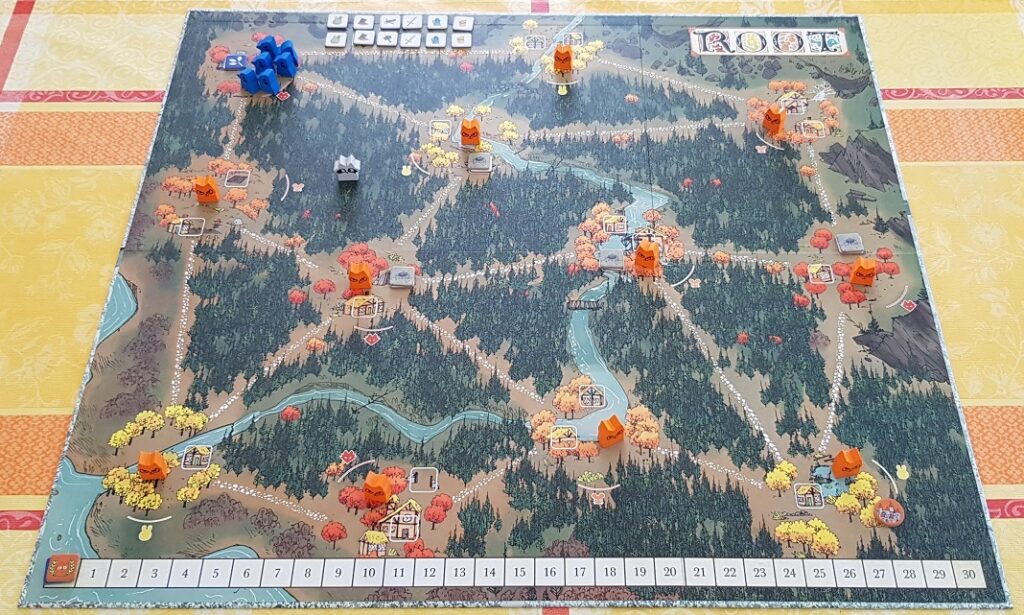Introducing new players to board games is a challenge every board gamer faces sooner or later. This article describes the process of how to get your family to play board games.
How to get your family to play board games?
Getting your family to play board games should be a well-thought-out process. You must know the potential players, their interests, create a friendly environment, and select a suitable, easy-to-learn board game.
Introduction
While board gaming is a hobby with many positives, and you can even play alone – to get the best out of it, you need someone to play it with you. Having a well-populated group of board game buddies is your best bet, but setting up a game night for such a group can be a tedious ordeal. Moreover, there’s always something else up or someone is busy, making get-togethers not as frequent as everyone would hope for.
It’s no surprise then that a lot of board gamers resort to the people they share their living quarters with. Spouses, children, siblings, parents, grandparents, cousins, aunts, and uncles. They make for perfect board game players – if approached correctly.
Share your enthusiasm
There’s only one problem – they usually don’t share your enthusiasm for board gaming, so getting them to play something is always difficult. They are not interested in the theme, find the rules too complicated, and the game too long.
But is there a way to gently nudge them into the board gaming scene? How would one do that? How to get your family to play board games?
Storming your family reunion with a copy of Gloomhaven, forcing people into something they can’t even comprehend, won’t bear fruit. Instead, you need a good plan, well before you intend to introduce a game.

Study the candidates
It’s detrimental that you know the potential players and their gaming history very well. Has any of them played a board game before? If yes, which ones? What are their favorite game mechanics? What complexity can they handle?
If not, what are their interests? Which theme will appeal to them and lure them in? Cats, fantasy, history, detective, pirate, or intellectual property, such as Marvel? Visually appealing games have a much higher chance of sparking interest.
Are they the kind of bunch that could benefit from a good cooperative experience? These are a lot easier to learn and get into since you can help each other out, but there’s a chance of quarterbacking (telling others what to do). The competitive games tend to be a bit more difficult and some players might be put off by losing.
On the other hand, if your family is more easy-going and party-prone (especially if alcohol will be involved), a party board game might be for them. These are usually very light and focus on social deduction and role-playing. With the right kind of people, they can be immense fun!

Carefully select a title
If there are still any doubts, always err on the safe side: choose the simpler and shorter alternative. With the number of modern board games available, you should come up with something that ticks all the boxes, or you’re just not searching deep enough. When selecting a game, make sure it’s something you know very well and have played many times. Nothing puts off new players more than learning if the one teaching the game doesn’t know what he’s talking about.
Know every rule by heart so that you can answer all disputes and misunderstandings verbally (without checking the rulebook) and without interrupting the flow of the game.
You can find suitable games on these lists:
- Top 10 Family Board Games
- Top 10 Christmas Board Games
- 13 Best Party Board Games For Adults
- What Is A Gateway Board Game? + 10 Examples
Plan the get-together
Invite people over, but don’t say it is to play board games. They are your family, not your geek buddies. Say it’s about lunch (or dinner) and that you’ll play a game or two afterward. Prepare a nice meal that will create a cozy atmosphere. Make the bonding around food, not drinks since you want your players more or less sober. The meal itself shouldn’t be anything too heavy – it will make them too tired for gaming.
Now that you have them all fed and bribed up, it’s time to get the game on the table. Since you’ve been such a great host so far, they’ll feel obliged to give something back – their time and effort to play a board game with you.

Be a good teacher
We already mentioned being well-familiarized with the game you teach, but the teaching itself is a skill that takes a lot of practice. Explain the objectives of the game clearly – let them know what the game is about, what are the core mechanics, and how to win. Also, throw in a bit of strategy. Inform them about what approaches work best, what to avoid, and so on.
Having someone on your side, who also knows the game, works wonders – teaching the game together is much easier. This way, it’s also much easier to convince new players that they should put in the effort and that there is in fact something good behind all this. If you’re on your own and you aren’t the best teacher around, other players can start grumping and there’s no one to back you up, making your work much harder
Don’t be too strict and make it about fun, even if you have to bend a rule or two. Let them take back their moves, and be helpful even if it hurts your chances of winning. Remember, these initial games are not about winning, they are about learning and having a good time doing it.
Future steps
Congratulations! Your family members are playing a board game with you! So, where do you go from here? The first thing is not to overwhelm them. Don’t introduce another game. Let them play the first one, again and again, and let them get that feeling of mastering a game.
Then, some will naturally get hooked and want to see more. Again, a careful selection of titles is very important. This is not yet the time for Twilight Imperium. Rather, scale the complexity of the games slowly and you’ll see exactly how much a player can take before it’s too much.

What if it doesn’t work?
Do not force anyone to play. If you see them reaching for their phones all the time or checking the score on TV, break the game and let them suggest doing something else. People should remember a board game session by having a good time, not by someone forcing them into something they weren’t comfortable with.
In the end, not everyone is cut out to be a board gamer. While they might have indulged you by staying and listening to you, it may only have been for this one time. While you can try again, it’s unlikely to work out and you’ll be better off finding someone else – other playing groups or family members.
Do you like what you just read? Consider subscribing for more content:
